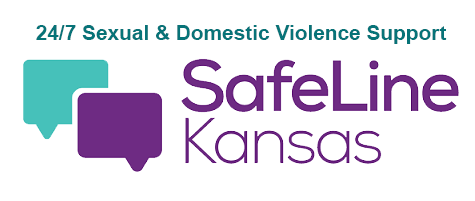Sexual Assault Survivor Information
Understanding Sexual Assault, Sexual Abuse, and Sexual Violence
If you are here because you are wondering whether what happened to you was sexual assault, sexual abuse, or sexual violence, you are not alone. Many people struggle to make sense of their experiences, especially when the person who caused harm tries to minimize or deny it. It is common for perpetrators to pressure survivors into believing the abuse “wasn’t really” sexual violence, to convince them they were “ok” with what happened afterward, or to absolve themselves of responsibility.
It is important to know: what happened is not your fault, and help is available.
KCSDV and our member programs are here to listen, believe, and support you in finding the resources and safety you deserve.

Sexual violence is experienced by all ages, genders, and demographics. It is important to understand that perpetrators will use myths about sexual violence and
The
National Sexual Violence Resource Center
shares that
1 in 5 women and nearly
1 in 6 men in the U.S. experience sexual violence in their lifetime.
- According to the CDC, over half of women and nearly one in three men in the U.S. have experienced sexual violence involving physical contact. Around one in four women and about one in 26 men have experienced completed or attempted rape. CDC
These numbers reflect real people—people just like you—whose experiences matter. Whether you’re looking for someone to talk to, guidance on next steps, or just reassurance, you’re not alone and your experience is valid.
Would you like to talk to someone?
Do you need immediate services?
Find Help
Speak to an advocate about sexual assault at a local domestic and sexual violence program.
Safeline KS Helpline
Call is free and confidential if your or someone you care about is in a crisis.
Emergency Room or Urgent Care
You can visit any Emergency Room or Urgent Care for treatment related to a sexual assault. Please know that you may be charged for medical care.
Forensic Nurse Exam
If you would like to have a Forensic Nurse Exam (SANE) to collect evidence related to the violence you experienced – please check our SANE Provider Map.
Was I Sexually Assaulted? Consent is the Key
Sexual activity without clear, voluntary, and ongoing consent is sexual assault. Consent means you freely agree to participate in sexual activity. You always have the right to set boundaries, change your mind, or stop any activity at any time, for any reason.
There is no consent when:
- You feel pressured, threatened, or forced.
- Someone uses their power, authority, or trust to manipulate you.
- You are unable to give consent due to drugs, alcohol, sleep, or unconsciousness.
- Someone lies or deceives you to obtain sex.
- You initially consent, but then change your mind and are not respected.
- You are underage or otherwise legally unable to consent.
No one ever has the right to violate your boundaries. Even if you were open to some form of intimacy, you decide how far things go. Your choices matter, and they must be respected.
Sexual Assault Can Happen in Any Relationship
Sexual violence is never justified, regardless of your relationship to the person who harmed you.
This includes:
- Current or former romantic partners
- Spouses
- Friends or acquaintances
- Strangers
- Anyone in a position of power, authority, or trust
Abuse can happen in same-sex, non-binary, or heterosexual relationships. Your relationship does not determine your right to safety and respect.
If You Have Been Sexually Assaulted
You may feel overwhelmed, confused, scared, or unsure of what to do next. These feelings are normal. There are people ready to support you, listen without judgment, and help you navigate your options.
You are not alone. You have options:
Advocacy Support:
Confidential advocates are available 24/7 to provide emotional support, safety planning, and information.
Medical Care: You have the right to seek a medical forensic exam or SANE (sometimes called a rape kit) to address health needs and collect evidence. You can choose which parts of the exam you want to complete.
Law Enforcement: Reporting to police is your decision. Advocates can help you understand the process and support you if you choose to report.
Legal System:
Prosecutors review cases to determine whether charges can be filed. Victim advocates and legal professionals can guide you through the court process if you choose to participate.
All Services Are Free and Confidential
KCSDV and its member programs provide free, confidential services across Kansas. Your privacy is protected, and your information will not be shared without your permission, except in very limited legal situations.
Find support near you:
Remember:
- What happened is not your fault.
- You deserve to be safe, respected, and heard.
- Help is always available, no matter your situation.
You do not have to go through this alone.

"I know someone that was sexually assaulted. How do I help?"
How do I help if I think someone I care about is experiencing sexual violence? – Link to bystander training guide:
www.righttobe.org/guides/bystander-intervention-training
If you are wondering if you experienced sexual violence there are two things to understand:
- Being in a committed relationship or marriage does not mean that someone can violate your consent
- Sexual violence is any activity that you didn’t want and said no to – it does not have to be penetrative sex
Sometimes a person will try to claim that since things did not go “all the way” or they “only just touched you” that it was not sexual assault. This is not true and not okay.
It is also important to understand that you have the right to decide what happens next if you talk to someone about experiencing sexual violence.
No one can make you talk to a counselor, advocate, law enforcement, or prosecutor – and no one can force you to seek medical care. You decide when and how you want to discuss your experience. These resources are available to you anytime you want them and they come with different help and considerations. The choices are yours and you decide what is best for your well-being.










